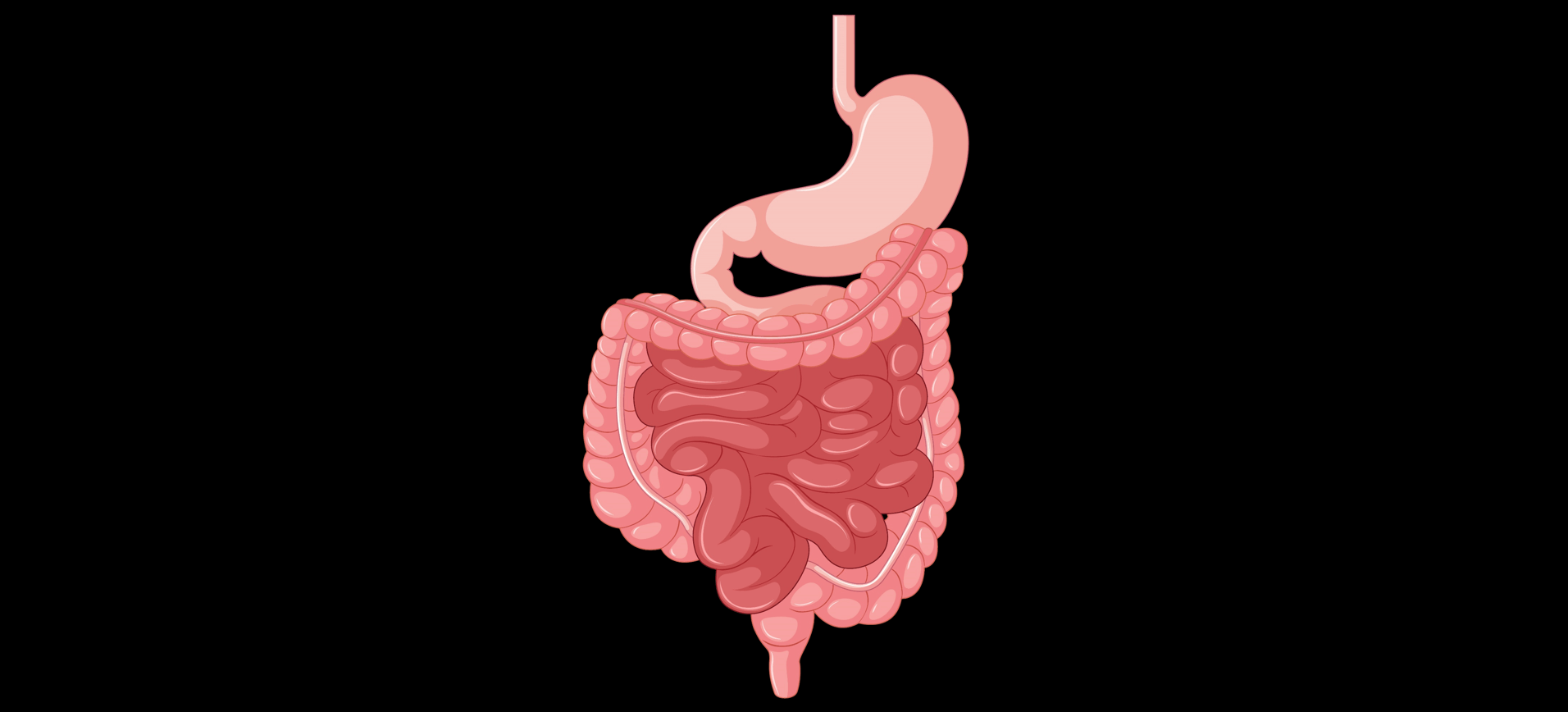Crohn’s disease and Ulcerative colitis can be a serious pain — in more ways than one. If diarrhea, abdominal cramps, and bleeding weren’t enough, these conditions can also impact other aspects of your life with symptoms like fatigue and joint pain. Not to mention, your mental health might suffer when the constant bathroom trips get you down.
Crohn’s and colitis are chronic illnesses that don’t have a cure, but they can be managed with certain medications. And some people prefer to support their gut health through natural means, like CBD oil.
Curious about how CBD could affect chronic digestion issues? Read on to learn more and get tips on how to take CBD.

What’s the difference between Crohn’s disease and ulcerative colitis?
Both Crohn’s disease and ulcerative colitis are forms of inflammatory bowel disease (IBD), a chronic condition that can cause inflammation in the digestive tract.
Whereas ulcerative colitis only affects the large intestine (colon) and rectum, Crohn’s disease can impact any part of the digestive tract. Both conditions can lead to debilitating digestive symptoms, like:
- Diarrhea
- Cramps and abdominal pain
- Rectal bleeding
- Fatigue
What is CBD?
Cannabidiol (CBD) is a cannabinoid, a natural compound from the cannabis plant. Unlike its sister cannabinoid, tetrahydrocannabinol (THC), CBD doesn’t cause psychoactive effects. Translation: You won’t get high from it.
CBD works by interacting with your endocannabinoid system (ECS), a network of receptors and neurotransmitters that helps your body maintain a state of balance. It also regulates several key bodily functions, including pain responses and digestion.

Research about the potential benefits of CBD for Crohn’s disease and ulcerative colitis
Not a lot of research investigates the potential benefits of CBD for chronic digestive conditions. But we do know that CBD has anti-inflammatory properties. A 2011 study in mice with colitis even found that CBD reduced intestinal inflammation. That said, research on people has yielded mixed results.
CBD might improve symptoms of Crohn’s or Colitis
In a 2018 study, participants with ulcerative colitis reported a higher quality of life when they took CBD capsules twice per day. Around 24% of those who took CBD achieved remission, too — but the placebo group had similar remission rates.
Research involving people with Crohn’s disease found similar results. In a 2021 study published in the Journal of Crohn’s and Colitis, participants with Crohn’s disease took CBD-rich cannabis oil orally. The oil also contained a small amount of THC. At the end of the eight-week study period, researchers found that people who took cannabis oil reported a higher quality of life. Curiously, cannabis oil didn’t lead to lower inflammation levels or clinical remission.
The verdict? CBD isn’t a miracle cure for colitis or Crohn’s disease. But research suggests that some people may experience improved symptoms from taking it. So, it’s possible that CBD could provide natural support in addition to other treatment methods.
CBD and pain management
Some evidence suggests that CBD might be able to lend a hand with other symptoms of ulcerative colitis and Crohn’s disease, like achy joints. Arthritis and joint pain affect around 30% of people with colitis and Crohn’s, making it the most common non-digestive symptom of both conditions.
Some research indicates that CBD could lead to lower pain levels in people with arthritis. What’s more, researchers also found that most participants who used CBD either used other pain medications less often or stopped them altogether. So, evidence suggests that CBD could provide a natural alternative for pain management.
CBD and mental health
People with colitis and Crohn’s experience higher rates of anxiety and depression than the general population. Stress can also trigger flare-ups in both conditions. So, mental health management is a key aspect of maintaining gut health.
Some research suggests that CBD could aid in managing certain mental health symptoms. A 2011 study found that CBD led to lower anxiety levels for people faced with an anxiety-inducing task: Public speaking. Additionally, in a 2022 survey of people who self-treat depression with CBD, 53% reported that CBD made them feel better overall. Another 88% said they’d rather take CBD than a prescription medicine.
Again, CBD isn’t a magical cure-all for any mental health condition. But when combined with other treatments, like therapy, it could provide calming support.
Risks and side effects of CBD
Interested in trying out CBD for yourself? First of all, it’s best to consult a medical professional. While CBD is generally safe, it can interact with certain medications. Additionally, some people may experience side effects, including diarrhea, drowsiness, and changes in appetite.

How to take CBD for Crohn’s disease or ulcerative colitis
Once you get the all-clear to try CBD for your colitis or crohn’s, you can find it in several different forms, including:
- CBD oil: Extracted from hemp plants, which you can take sublingually (under your tongue). Effects can kick in within 15 minutes.
- CBD capsules: CBD oil in capsule form. When swallowed, these capsules have to pass through the digestive system first, meaning they may take longer to induce effects.
- CBD edibles: Foods or drinks infused with CBD. Like with CBD capsules, they have to pass through your digestive system.
- CBD topicals: Lotions or creams that you apply to the skin. Humans have ECS receptors in the skin, which means it may be possible to absorb CBD topically.
- CBD vapes: CBD products that you can inhale with a vaporizer. Experts don’t recommend them for people who don’t already vape, but effects can take place within 15 minutes.
Which one should you try? Depends on your personal preferences. For example, if you want something fast-acting, taking a dropper full of oil under your tongue might be the right choice for you.
On the other hand, if you want more localized effects, rubbing a CBD cream on your achy joints or rumbling gut may be the way to go.
Which type of CBD should I take?
Some researchers believe that CBD works best in tandem with its sister cannabinoids, like THC, in a process called the entourage effect. That said, everyone’s body chemistry is different, and what works for one person may not work for you. So, experimenting with different types of CBD could help you find the right one for you.
3 of the most common types of CBD
- CBD isolate: Pure CBD, without any other plant compounds or cannabinoids.
- Full-spectrum: CBD with a “full spectrum” of plant compounds and cannabinoids, including trace amounts of THC. It won’t make you high but could trigger a positive drug test.
- Broad-spectrum: Similar to full spectrum CBD, but with the THC removed.
No matter which type you try, just make sure that the brand goes through third-party testing to verify its purity and potency. Often, you can find test results via a scannable QR code on the product’s packaging, or you may be able to look it up by batch number on the brand’s website.
It’s also best to start with a low dose and work your way up, until you learn how CBD will affect you. Slow and steady wins the race.
